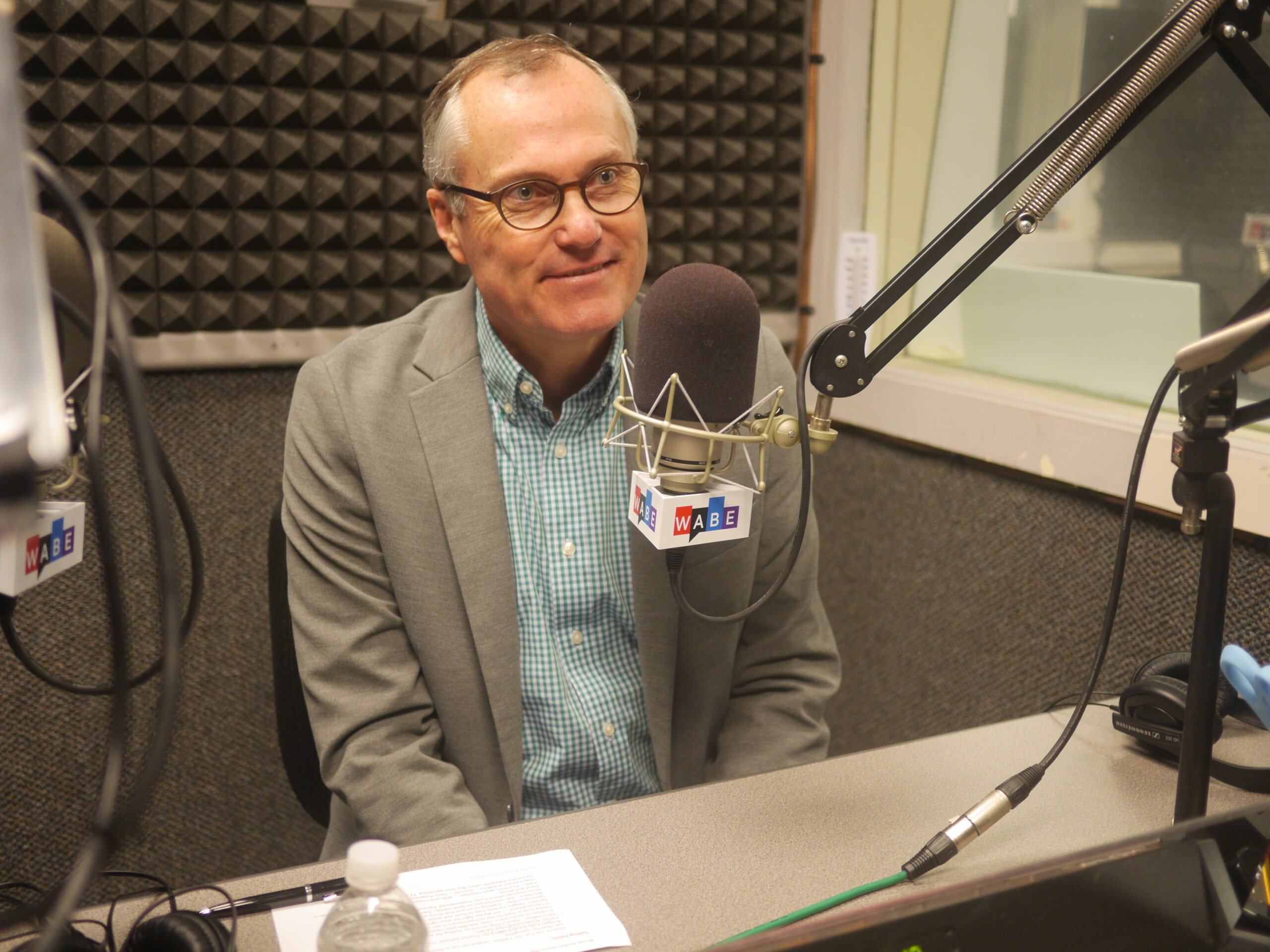Meet Republican Gubernatorial Candidate Casey Cagle

Republican Casey Cagle joined Denis O’Hayer to talk about his candidacy for governor.
Sam Whitehead / WABE
In the lead up to the May 22 primary elections, “Morning Edition” will feature conversations with the major party candidates for governor of Georgia. Republican Casey Cagle joined Denis O’Hayer on April 6.
Cagle was elected lieutenant governor in 2006. Prior to that he was a state senator from the Gainesville area for 12 years.
Listen to the broadcast length interview above or the full length version below.
Get more information about Georgia’s candidates for governor >>
On Georgia lawmakers’ decision to cut state taxes without knowing the full impact of the federal tax overhaul
We took a very bold stance to pass the historic tax cut rolling the rate back from 6 percent to 5.75 percent. And that will also be rolled back to 5.5 percent. We doubled the standard deduction. And this impacts individuals but also corporations as well. And it is the first time in history we’ve seen a rollback.
On making those cuts without knowing future state budget needs
I think that is one of the discussions that we looked at. I think it’s important to put in context that the state is doing extremely well. Our rainy day fund is as high as it’s ever been. Our state revenues are pacing at a very good rate. And from my point of view, we made some bold steps in terms of our spending priorities. For the first time in Georgia’s history we fully funded [the Quality Basic Education school funding formula].
On whether he’d continue to fund the QBE education funding formula and his other budget priorities
Absolutely. As you know education is the great equalizer, and we’ve got to be focused on that. But we were also able to put $4.5 million into recovery for opioid addiction. We now have over $1 billion of resources that we’re specifically targeting to transportation. We also did a transit bill as well, which has $100 million in there to help in the expansion for the 13 county [metro Atlanta] region.
On whether $100 million was enough to put towards transportation funding
There’s no question that when you look at the cost of rail or you look at the cost of bus rapid transit, all of these are expensive propositions. So, $100 million dollars is probably a very small piece of that puzzle. But the important point is that we are moving in the right direction.
On whether it’s time to consider expanding Medicaid
I philosophically believe in a safety net, but I don’t believe in a safety net that becomes a hammock. I believe in a safety net that becomes a trampoline that lifts people up. And so as a result of that, this year we passed legislation that I really championed [creating] a center that will articulate what those waivers need to consist of that allow individuals to be able to get affordable health insurance at a price that they can afford but that meets their fundamental needs.
On the affordability of health insurance
When you look at the rising cost, I mean we’re talking about significant 20, 30 percent of household income that is going to just pay the premium. That is not sustainable for individuals so the root cause that we have to focus on is bringing the cost down.
On medical marijuana access and cultivation
First of all, I would rather see the federal government act on the issue and either make a decision that they’re going to relax and allow this to be transported [across state lines] or not in the cannabidiol oil format, which is you know is very very different. I am very concerned about the motives of individuals that want to move this to a recreational component.
On whether he’d oppose recreational marijuana
I am adamantly opposed to it. I did pass and championed legislation this session that would allow for us to create a commission that would look at [medical] cultivation in a very regulated environment.
On his support for legislation that would label “sanctuary cities” in Georgia
I passed legislation that did define what a sanctuary city is and also put a requirement in that every city and county in the state had to confirm that they were not. I believe that [“sanctuary cities”] are not only jeopardizing the safety of their citizens, but they’re also forcing their local law enforcement officers to violate their oath of office.
On what efforts backed by Gov. Nathan Deal he’d preserve and change
[Many] of the initiatives he passed, I have been a partner on, and I think Governor Deal has done a very very good job. He has positioned our state beautifully to see the economic growth that we’re experiencing. Many of the things that he has obviously been a part of we will not undo, but we want to add to it, and that means to continue that great legacy.








